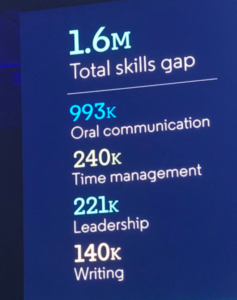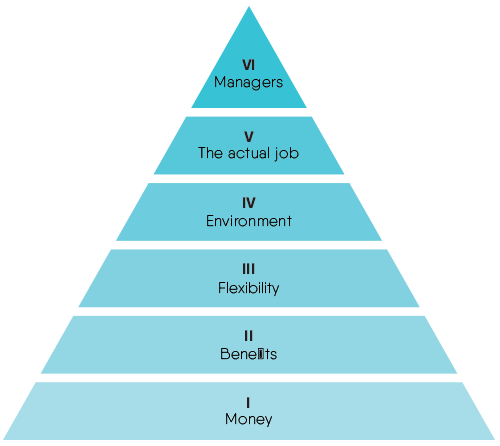So, the other day I was reading this article by Josh Bersin. You know Josh, right? Bersin by Deloitte, big time voice in the HR Industry for decades. Josh might be one of the most recognizable thought leaders in our space. He recently left Deloitte and is back on his own. Josh has forgotten more about HR than I’ve ever known.
I’ve probably met Josh personally 15 times. Sat at dinner with him one night, at an industry event, for about 3 hours and had some really good conversation. Just saw him at LinkedIn’s Talent Connect as I was coming off the live stream and he was coming on, went to say “hello” and he looked at me as if I was about to mug him! LOL! I think he legitimately thought I was coming to ask for his autograph! Turns out, I know Josh, way more than Josh knows me! That’s okay, he’s still brilliant.
The article is titled: “What Emails Reveal About Your Performance At Work”:
After analyzing months of communication patterns using messaging metadata (data about the messages, not the messages themselves), the company can now statistically prove that certain types of communication behavior directly correlates to business performance. In fact, using employee communication data with a Deep Learning Model, Genpact can predict “Rockstar” performers with 74% accuracy. (This process works for emails, slack messages, skype messages, etc.)…
What did they find? The highest performing leaders use simpler words to communicate, they respond faster, and they communicate more often. In other words, they are more engaged, more efficient, and more action-oriented.
Now there’s a ton of data science that comes into play to get to this outcome. I’ve written about the power of Microsoft’s Workplace Analytics using data to help organizations and individuals improve their performance by analyzing how we work, and this is basically doing the same thing.
How do you improve your performance through email?
1. Respond quickly to messages.
2. Use language everyone can understand.
Let’s unpack those two things a bit because it sounds way too simple to actually work!
When you respond quickly to any kind of messaging a person has sent you it triggers a couple of things. One, the person who sent the message feels validated that not only did you get the message, but you thought ‘they’ were important enough for a quick response back. Don’t discount the impact that has on your influence at a larger level.
Two, a quick response shows the people you are communicating back to that you’re on top of your stuff. When you get a response to a message you sent from three days ago, I assume that person is way over their head. Look, I asked if you were interested in doing this thing or not. It’s a seven-second response, just respond, it’s not difficult!
Using simple, straightforward language ensures that everyone on the message can be crystal clear about what the message was about. Nothing was vague or left to interpretation. “No, I will not attend this meeting. Instead, Sandy will be coming as she is the one who has the data you need, and my full support on any decisions that need to be made.” Bam! Done. Simple.
Sometimes I think we overcomplicate what really good performance looks like. Turns out if respond quickly and make sure people understand you, you meet a couple of really important qualifications to becoming a strong leader!
Also, go connect with Josh Bersin and tell him Tim said “Hello!”



 Level I – Money – cash!
Level I – Money – cash!